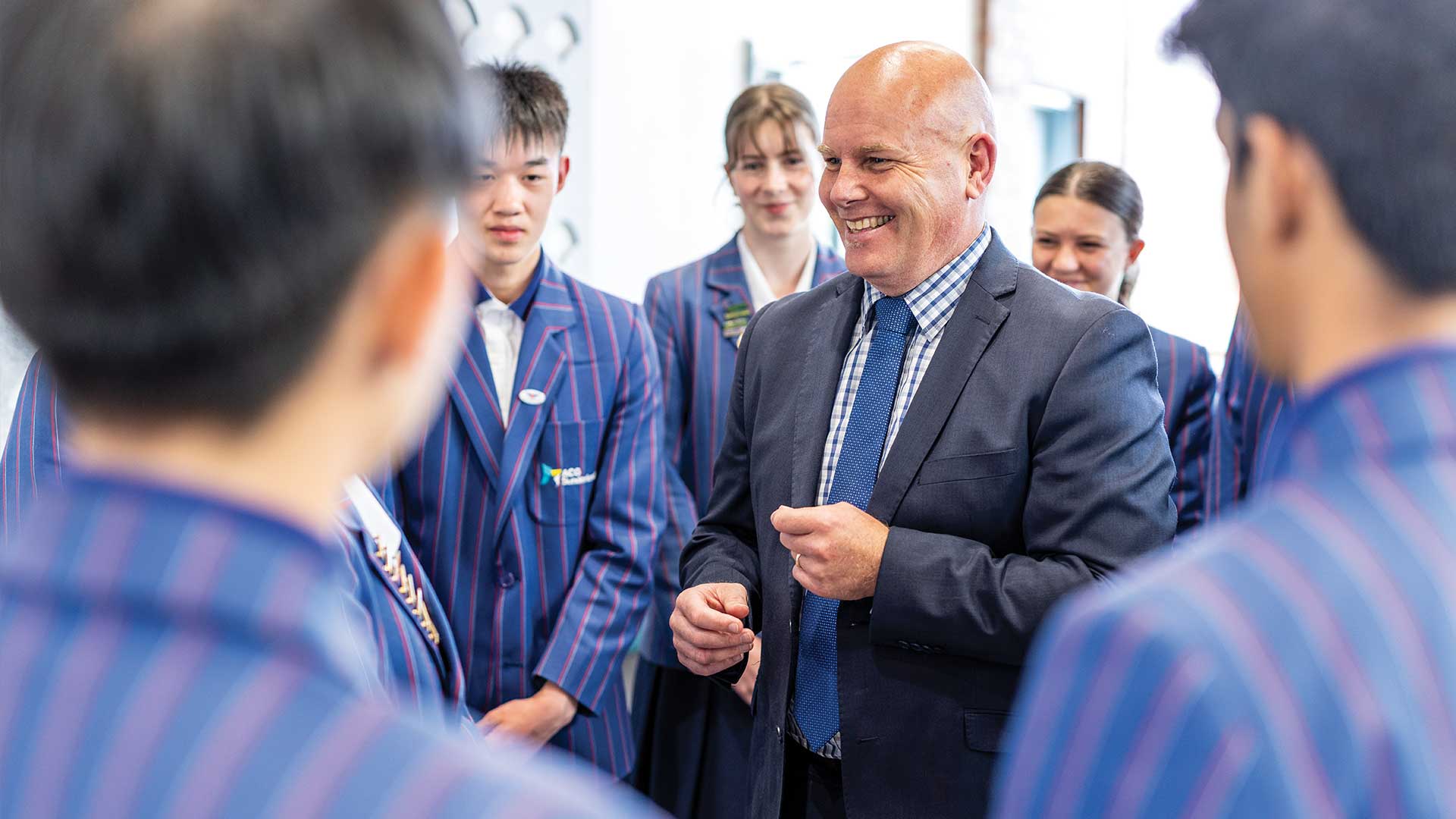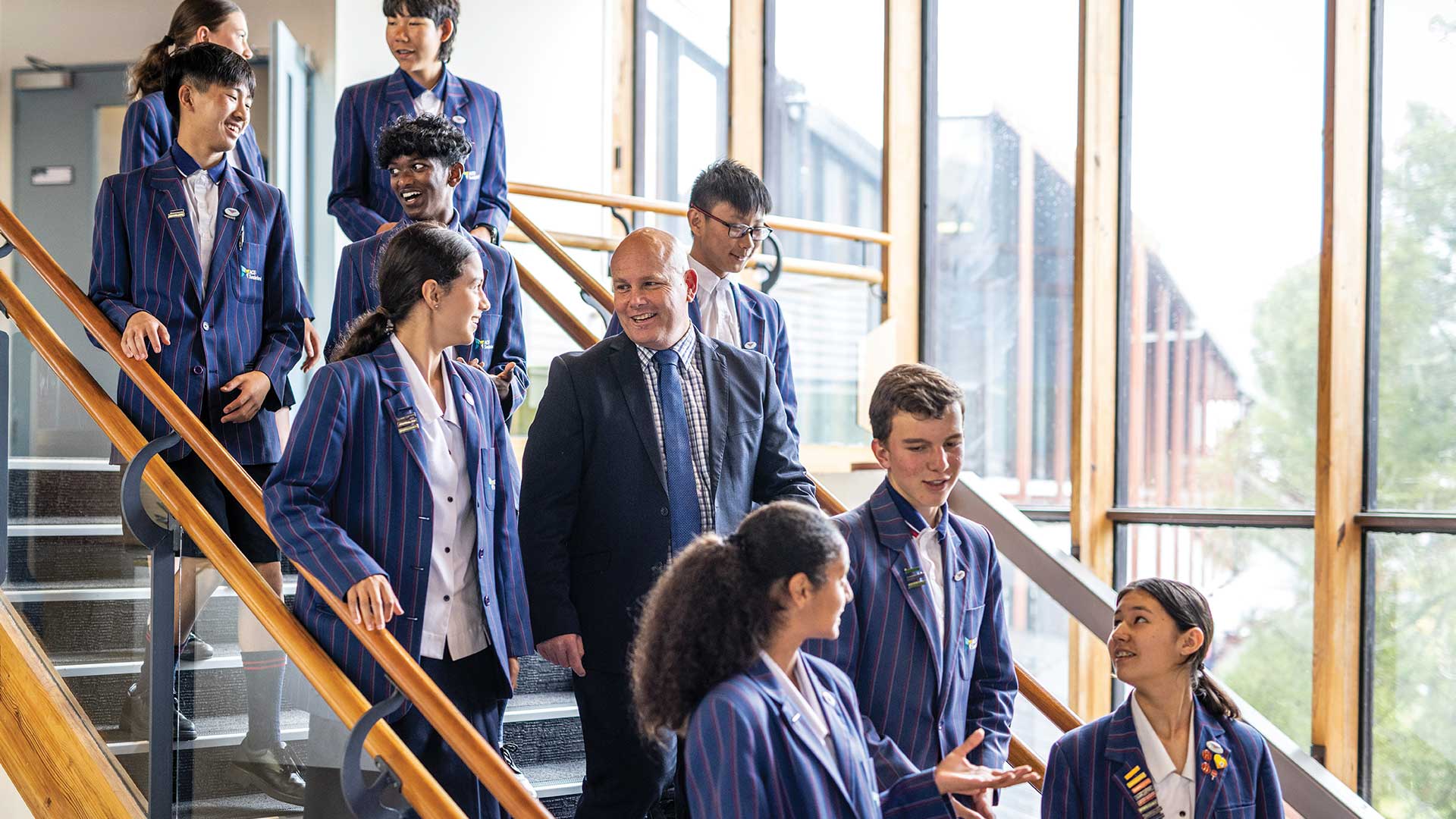ACG: The Future of Leadership in an AI-Driven World
As artificial intelligence (AI) continues to revolutionise industries, education is undergoing a transformation that promises to reshape how we prepare future leaders. In this exclusive interview, Nathan Villars, Principal of ACG Sunderland, offers his insights into the evolving role of AI in education and what it takes to thrive in a technology-driven landscape.
Rather than viewing AI as a challenge to control, Villars and his team see it as an opportunity—an essential tool to enhance learning, streamline assessments, and unlock new ways of thinking. Drawing on ACG Sunderland’s collaboration with leading technology providers, as well as his own background in geography and geology, Villars provides a unique perspective on how students today can develop the skills, leadership traits, and global awareness needed to excel in the 21st century.
In this candid discussion, Villars explores the balance between embracing technology and fostering traditional leadership qualities, the importance of interdisciplinary learning, and the role of sports and cultural exchanges in shaping well-rounded individuals. As he shares his vision for the future, Villars offers thought-provoking ideas for educators, parents, and young people navigating a world on the brink of profound change.
With AI at the forefront of education’s evolution, Villars’ insights provide a refreshing reminder that while technology may shape the future, it is adaptability, empathy, and curiosity that will define tomorrow’s leaders.
How do you see the rise of AI impacting the education sector in the next decade?
When ChatGPT came on the scene last year, educators and the media alike were looking around at how to control the use of this technology in schools with internal assessments, etc. Here at ACG we were excited by the opportunities. In fact, our parent company Inspired are actively researching into AI assisting with writing and assessing mock examination in the very near future. Difficult to say right now, how AI will change the sector in the next decade, but in my opinion, it will be significant.
From your experience, what are the most important traits that tomorrow’s leaders will need to thrive in an AI-driven world?
Open mindedness.
The way we completed so many tasks in the past is about to be altered significantly. Educators and young people need to keep abreast of these changes as best they can, but always be open to these changes.
How is ACG Sunderland preparing students to adapt to the rapid advancements in AI and technology?
We have staff now collaborating with our curriculum provider Cambridge. In fact, I am working with them currently on the implementation of online assessment. A project that should begin in 2025.
Mrs Mehwish Hasan, our Head of Primary Computer Science is currently collaborating with Peter Dong, an AI company (Byte Ed).
In what ways do you think AI can be integrated into the curriculum to enhance learning and teaching experiences?
I don’t think AI will be integrated into a curriculum, I believe AI will be integrated into all aspects of education. From the recruitment of staff to classroom delivery to assessment, to preparing people for university and other tertiary providers.
In your experience overseeing curriculum implementation, what specific skills do you believe should be emphasised to equip students for future careers within the context of potentially profound change and flux?
The changes and rate of changes AI will bring to our society in the very near future will never have been witnessed before. I think any predictions made today about how to prepare young people for that future – is actually impossible. Other than, be nibble, be open minded and keep up with the changes.
How do you balance the need for technological proficiency with the development of traditional leadership qualities in your students?
A really good question, however, you do not necessarily need to balance this idea. Technology completely surrounds our young people today in all aspects of their lives. Perhaps simply by the continual usage of this technology, most young people are pretty proficient users – they also just use their intuition and seem to navigate around new tech and ideas comfortably.
With regards to traditional leadership and development in this area, schools need to generate time for this to be accomplished. Whether it’s, leadership camps, team building, outdoor education, leadership instruction or just giving students opportunities to grow.
The key point is time – let the use of technology generate the time needed to unpack the more traditional leadership opportunities.

With your background in geography and geology, how do you think interdisciplinary approaches can benefit students in understanding and leveraging new technologies and driving innovation?
The study of the earth and how humans interact on our planet has only been enhanced by technology. I am aware the understanding of geologic processes deep within the earth has been clarified and enhanced in recent years, which is really exciting!
Sports and extracurricular activities are a big part of ACG Sunderland’s holistic approach. How do you see these activities contributing to the development of future leaders in an AI-dominated landscape?
Society must guard against the demise of sports and co-curricular activities in a world dominated by technology and computers everywhere. Parents and schools together must continue to encourage and nurture sports, activities and the outdoors to balance the time spent on screens. In my opinion, it’s about setting positive habits that students can build into their lives. It will be these people in adulthood with a balanced approach who will be the successful leaders in the latter part of the 21st century.
What role do you think global connections and cultural exchanges play in developing the skills and perspectives necessary for students to succeed in a rapidly changing technological landscape?
Students who experience other cultures and therefore, other perspectives are generally better placed to be successful in our society today. Inspired Schools, offer and encourage overseas exchanges and camp to our students. I believe that students who have a richer fabric of experience are always going to be set up for success moving forward. The changing technological landscape that these students experience and will continue to do so, only emphasises this need for multiple cultural experiences to be available to our young people.
What advice would you give to parents and educators about nurturing aptitudes in young students that will be crucial in adapting to a world of change?
Encourage the use of technology and at the same time continue to educate young people on the appropriate use of this technology. Set boundaries and expectations. Educate them about the pitfalls, the law and the consequences of poor decisions. Continue to emphasise this message in your subject curriculum, your health programmes as well as your wellbeing programmes too.
Our experience is that once the parameters and framework is set – young people are generally making good technological decisions.

